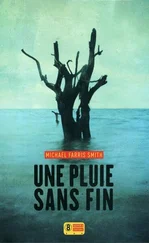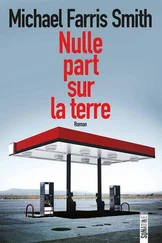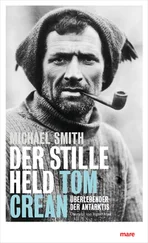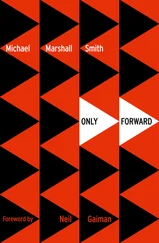‘What are we going to do?’ he asked Marcia as she passed him another cup of tea.
‘About?’
‘About the picture we found in Eddie’s wardrobe.’ He stared gloomily into his teacup. It was not easy to acknowledge that one’s son was an art thief.
Marcia shrugged. ‘Do we have to do anything?’
William watched her sip her tea. She was an attractive woman - in a slightly blowsy sort of way - and he enjoyed her company. But he was not entirely sure about her, and the answer she had just given caused him some concern. He wanted a soulmate - not just a flatmate - and he wondered how close he could be to somebody who thought that the presence of a stolen painting under one’s roof was not a matter for immediate anxiety. Did women think about moral issues in a different way? Were they simply more pragmatic?
‘I don’t think we can just leave it,’ said William. ‘It must belong to somebody. There must be an owner somewhere who’s missing it.’
Marcia thought about this. After a while she put down her cup and looked at William. ‘So the painting’s stolen - it’s not our fault. Eddie’s stolen it or is looking after it for somebody who stole it. But we didn’t do any of that.’
William shook his head. ‘No, Marcia, you’re wrong. If you hold on to something that’s been stolen, you’re in trouble. It amounts to being in possession of stolen property. You can be prosecuted.’
Marcia seemed unconcerned. ‘I still say that it’s nothing to do with us. Return it to Eddie. Get rid of it. What else can we do?’ She paused. ‘Unless we go to the police. You could always do that, I suppose.’
It was not what William wanted to hear. He had, of course, considered the possibility, and in normal circumstances he would not have hesitated to hand in stolen property. But this was different. This was property that had been stolen by his own flesh and blood.
‘I can’t do that,’ he said, his voice taking on a stressed, almost agonised tone. ‘I can’t turn in my own son.’
Marcia understood. ‘Of course you can’t.’
William rose to his feet and began to pace about the room. ‘And yet . . . and yet there must be cases where you have to report a member of your family. What if you know that somebody in the family is a serial killer, for example? You don’t keep quiet about that, do you?’
‘It can’t be very easy,’ said Marcia. ‘But Eddie’s not a murderer, is he? Eddie’s just a . . . well, Eddie’s just a bit of a naughty boy. That’s all.’
William did not seem to have heard her. He had stopped in front of the small window at the back of the office and was looking out of it. ‘Of course, I could get the painting back to its owner,’ he muttered.
He turned round and smiled at Marcia. ‘That’s the solution, Marcia. We return the painting. Discreetly. We set things right that way. Then I’m spared the duty of handing my own son over to the police.’
William waited while Marcia considered this. She looked doubtful. ‘Maybe.’
‘Just maybe? Don’t you think it’s the obvious thing to do?’
Marcia looked at her watch. She had an appointment with one of her suppliers and she needed to get going. ‘The problem is,’ she said, ‘that we don’t know the first thing about it. Whose is it? Where did Eddie get it?’
‘We ask,’ said William.
Marcia looked at William dubiously. ‘Ask Eddie?’
That was not necessary, William explained. ‘Something I read came back to me,’ he said. ‘I think I know where to go.’
Marcia looked at her watch again. Her seafood man, whom she was due to meet, always insisted on punctuality - which was a good thing, she thought, in a man who dealt in perishables. ‘Where?’ she asked. ‘Where do we go?’
William waved a hand in the air, indicating the ether, the world of www.
At the same time as William and Marcia were agonising, or William, at least, was agonising, over what to do about their awkward discovery in Eddie’s wardrobe - their damnosa hereditas , as Roman lawyers might put it - Caroline and James, feeling the need for a late lunch, were peering into the window of a small bistro behind the British Museum. It was on a street of book and antique shops; to one side was a dusty dealership in antiquarian maps, and to the other a shop that specialised in Greek and Roman antiquities.

‘That’s what I really like about this area,’ mused James. ‘If somebody from the past slipped through a time warp and ended up standing on this street, he would not feel lost. Not at all. He’d look into that window next door and think: oh, a new lamp shop. Of course, the lamps are several thousand years old. And if he didn’t know where he was, he could pop into that map shop and pick up a map of the Roman Empire. Or a map of Londinium.’
Caroline gazed at the menu displayed in the bistro window. Her mind was on quiche. Quiche could be dodgy: it was often soggy and very unappetising. Was she in a pasta mood? she asked herself. Perhaps. ‘What are you talking about, James?’
‘I’m talking about people who might find themselves in the wrong time. Through some quirk of physics.’
‘Oh. Is pizziccata hot? I don’t like those really hot chillies. I never have.’
‘Not sure,’ said James. ‘Of course, nobody ever does, you know. Nobody wakes up and finds themselves in the wrong century. Mind you, some people just seem to have been in the wrong century from the beginning. Young fogeys, for instance. Do you know any young fogeys?’
Caroline kept her eyes on the menu. Reading menus always made her hungry and she heard her stomach growl softly. ‘Young fogeys?’ she said. ‘You?’
‘Very funny, Caroline,’ said James. ‘You don’t listen to me, do you?’
Caroline prodded him playfully. ‘Sometimes. But look, I’m really hungry and we can get quite a good lunch in here for . . . Well, look at the menu.’
‘Poor dears,’ said James. ‘Restaurants are really struggling, aren’t they?’
They went in. The restaurant was busy enough - what with the special promotions - but a table was just being vacated by another customer and they got that.
‘Well then,’ said James after they had given their order. ‘Caravaggio.’
They had just attended a lecture on the artist given by a passionate lecturer whom James had described as ‘a bit like Caravaggio himself, except, one assumes, for the violence’.
‘One can hardly imagine,’ he said, ‘that a shrinking violet would be drawn to lecture on Caravaggio.’ He paused. ‘What do you think of Caravaggio, Caroline?’
‘Too dramatic for me,’ she said. ‘I can’t imagine that people of the time writhed quite as much as they do in his paintings.’
‘Oh, I don’t know,’ said James. ‘They were very expressive. It’s just that we’ve become so cool. They would probably consider us very stiff.’
Caroline knew what he meant. ‘It’s very sad that people feel they have to be cool,’ she said. ‘They have to suppress all sense of joy and excitement.’
‘Precisely,’ said James. ‘And colours too. All those blacks and greys. Everything is toned down - muted really. Imagine finding a Caravaggio. Imagine how the Queen felt when she discovered that what she thought was a copy was the real thing.’
‘I suppose she’s used to it,’ said Caroline. ‘But what about those Jesuits in Dublin who discovered a Caravaggio in their sitting room . . . ?’
‘Their parlour ,’ corrected James. ‘Jesuits have parlours, not sitting rooms. There’s a difference, you know.’
Читать дальше











